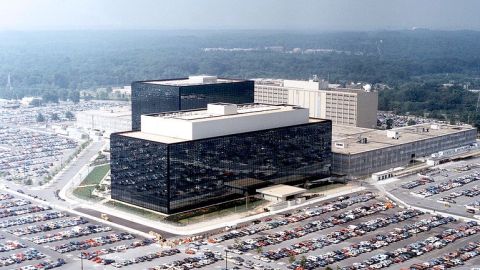Government Secrets and Lies

In 2005, The New York Times revealed that under a presidential order signed in 2002, the National Security Agency (NSA) had been monitoring the phone calls, e-mails, and internet traffic of a large number of American citizens without obtaining warrants. With the secret cooperation of AT&T, Verizon, and BellSouth—one company, Qwest, refused to cooperate when the government wouldn’t produce any legal authorization for the program—the NSA compiled an enormous database of phone records to use in a massive “data-mining” operation. Although the Foreign Intelligence Surveillance Act of 1978 expressly forbids the NSA from monitoring domestic communications for more than 72 hours—and although the program seems violate the Fourth Amendment’s prohibition of “unreasonable searches and seizures”—the program is apparently still in place. Mark Klein, a former AT&T technician who had helped install the monitoring equipment, told a court that “it appears the NSA is capable of conducting what amounts to vacuum-cleaner surveillance of all the data crossing the internet—whether that be peoples’ e-mail, web surfing or any other data,” adding that “it’s not wiretap, it’s a country-tap.”
Legal challenges to this warrantless wiretapping program have so far gone nowhere, largely because the Bush administration repeatedly invoked what is known as the “state secrets privilege,” arguing that allowing the courts to even review the program would endanger national security by revealing state secrets. Although both President Obama and Vice President Biden were sharply critical of the Bush’s use of the state secrets privilege to have lawsuits against the government thrown out of court, the Obama administration has itself invoked the state secrets privilege twice to try to get cases against the program dismissed. Whether or not the program the is illegal, the administration argues, it cannot be challenged in court.
Of course, it’s reasonable for the government to keep some things secret—we don’t need to know launch codes or the details of troop deployments. But it’s telling that when the executive branch has claimed broad, extraordinary secrecy powers, it has frequently done so to cover up evidence of its own incompetence or crimes. The state secrets privilege, for example, was first recognized by the Supreme Court in The United States v. Reynolds, after the Truman administration argued that releasing accident reports on the crash of a B-29 bomber would reveal classified details about the plane and its mission. But when the accident reports were finally declassified in 2000, it turned out that what the documents actually revealed was that the plaintiffs were probably right that the government had been negligent in the crash.
The Nixon administration likewise tried to prevent publication of the Pentagon Papers on the grounds that it would inflict “serious injuries” to our foreign relations—even though the papers proved to be more politically embarrassing than anything else. But in The New York Times Co. v. The United States, the Supreme Court ruled that the government could not preemptively block publication of the papers without overcoming the “heavy presumption” against the prior restraint of free expression. And, in a concurring opinion, Justice Potter Stewart wrote that given the relatively unchecked authority of the President in military and international affairs, “the only effective restraint upon executive policy and power may lie in an enlightened citizenry—in an informed and critical public opinion which alone can here protect the values of democratic government.”
And, of course, President Nixon tried to use the doctrine of executive privilege—that the executive branch has a right to keep the details of internal policy debates confidential—in The United States v. Nixon, to justify holding onto the tapes that revealed his involvement in the Watergate break-in. Although the Supreme Court acknowledged a President’s need for confidentiality, it unanimously held that allowing executive privilege to be used to “withhold evidence that is demonstrably relevant in a criminal trial would cut deeply into the guarantee of due process of law and gravely impair the basic function of the courts.”
Now the Obama administration—like the Bush administration before it—is asserting that American citizens who have been spied on cannot bring legal cases against the government on national security grounds. If President Obama can have the cases against the NSA’s wiretapping program completely thrown out on state secrets grounds, then the NSA—or any government agency—can in theory violate the law with impunity. As Sen. Russ Feingold (D-WI) put it, “When the executive branch invokes the state secrets privilege to shut down lawsuits, hides its programs behind secret OLC opinions, over-classifies information to avoid public disclosure, and interprets the Freedom of Information Act as an information withholding statute, it shuts down all of the means to detect and respond to its abuses of the rule of law—whether those abuses involve torture, domestic spying, or the firing of U.S. Attorneys for partisan gain.”





